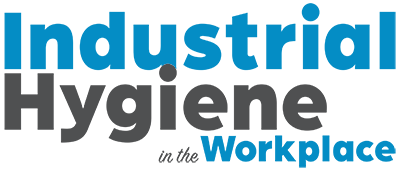OSHA enforcement trend outlook under a Biden administration
While workplace safety standards have been thrust into the national conversation since the coronavirus (COVID-19) pandemic began, OSHA enforcement has been relatively quiet. That will likely change under a Biden administration, according to the law firm Morgan, Lewis & Bockius LLP.
Right now, even though OSHA has been inundated by complaints, inspections have been fairly general because there is no one specific standard to inspect for compliance. In fact, because of the overwhelming number of complaints – and to avoid unnecessarily exposing OSHA inspectors to COVID-19 risk in the field – OSHA can only conduct a relatively limited number of onsite inspections. Instead, OSHA is responding to complaints in large part by sending employers what are known as informal “phone fax” letters. This gives employers the opportunity to respond in writing to allegations against them related to COVID-19. Employers can submit, for example, a written description of what they are doing to combat COVID-19, any written COVID-19 plan, employee training materials, training logs, and photographs of face coverings and social distancing signs. OSHA often closes out these informal complaints after receiving an employer submission without the need to conduct an onsite inspection.
The change of administration and possibility of an emergency temporary standard could lead to increased inspections and citations by OSHA. If OSHA issues a temporary emergency standard, or even if OSHA just publishes additional COVID-19 guidance, OSHA inspectors would have more concrete rules to enforce. This coupled with a possible increase in the number of inspectors could lead to an uptick in enforcement against employers.
If a Biden administration does not issue an emergency temporary standard, there could still be a rise in citations under the general duty clause, as President-Elect Biden and his transition team have announced plans to bolster OSHA enforcement as part of their overall COVID-19 strategy. Companies are hopeful that a new administration also will provide employers with the resources that they need to get strong COVID-19 safety and health programs up-and-running through consultations, clear guidance, and model programs and training that employers can easily adopt. This will be particularly important as businesses that were closed for the winter (due to the inability to work indoors and rising COVID-19 numbers) reopen.
One looming question in light of the promising news on vaccines is whether any OSHA emergency COVID-19 standard will address vaccines. For example, OSHA’s Bloodborne Pathogens Standard, 29 CFR 1910.1030, which was issued in 1991 largely in response to the HIV epidemic, affirmatively requires employers to offer the Hepatitis B vaccination to all employees who may reasonably anticipate contact with blood while performing their job duties.
Dr. Anthony Fauci and other epidemiologists have warned that a significant percentage of the US population must take the vaccine before the country can return to normal. Assuming that a vaccine receives FDA approval, a Biden administration will have to persuade Americans to take it. And it’s yet to be seen whether the incoming administration will address vaccines in any OSHA emergency temporary standard or otherwise push for vaccines through OSHA enforcement.
All employers should be ready for increased enforcement and new guidelines—or possibly even standards and regulations—on steps employers should take to combat COVID-19.
Share on Socials!
Haws® Corporation Appoints Chuck Gruber as New CEO
Save the Date for the 2024 Annual Conference!
Soter Analytics Announces Latest Version of SoterTask for Improved Productivity and Reduced Injury
Leaders in Industrial Hygiene
Council for Accreditation in Occupational Hearing Conservation (CAOHC)
Subscribe!
Sign up to receive our industry publications for FREE!







